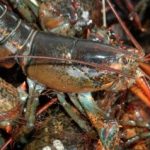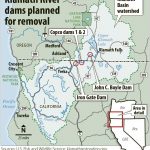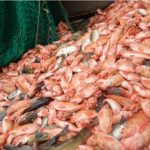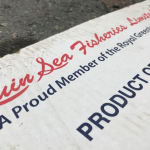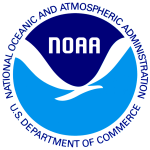Tag Archives: magnuson-stevens-act
New Report Supports Pallone Position on Flexibility in Fisheries Management
 Today’s hearing supported Pallone’s long-time call for revisions to the Magnuson Stevens Act that will take into account more socioeconomic concerns to ensure that the livelihood of fishermen and fishing communities are not unnecessarily hurt because of arbitrary guidelines. [email protected] 09:50
Today’s hearing supported Pallone’s long-time call for revisions to the Magnuson Stevens Act that will take into account more socioeconomic concerns to ensure that the livelihood of fishermen and fishing communities are not unnecessarily hurt because of arbitrary guidelines. [email protected] 09:50
Gloucester Daily Times Letter: Fishery time lines a recipe for failure – Captain Paul Cohan, F/V Sasquatch, Gloucester Ma.
![]() The Magnuson Stevens Act, as it’s currently written and interpreted by NOAA, is a lot like watching a puppy dog trying to catch his docked tail. Although amusing to watch, the impossibility of the task makes it somewhat sad and ultimately pointless. Now, if the dog’s tail had not been lopped off and was still as nature intended, the poor pup could eventually catch it. Similarly, If Magnusson had sufficient flexibility in rebuilding time-frames, and the language that requires that all stocks be concurrently rebuilt to historic highs eliminated, we might stand a chance of catching our own tails, which we’ve been fruitlessly chasing around the ocean for 37 years. more@GDT 00:55
The Magnuson Stevens Act, as it’s currently written and interpreted by NOAA, is a lot like watching a puppy dog trying to catch his docked tail. Although amusing to watch, the impossibility of the task makes it somewhat sad and ultimately pointless. Now, if the dog’s tail had not been lopped off and was still as nature intended, the poor pup could eventually catch it. Similarly, If Magnusson had sufficient flexibility in rebuilding time-frames, and the language that requires that all stocks be concurrently rebuilt to historic highs eliminated, we might stand a chance of catching our own tails, which we’ve been fruitlessly chasing around the ocean for 37 years. more@GDT 00:55
Center for Biological Diversity “tree huggers,” Endangered Species Act bid has PROP partnership concerned it – 4,000 year history of taking care of its coral

The Pacific Islands Regional Ocean Partnership or PROP has great concerns over a proposed listing of 66 reef building corals under the Endangered Species Act (ESA). Calling the group “tree huggers,” Guam President Joseph Cameron Guam’ says PROP has a problem with that request because these people have never been to the pacific. continued@islandbusiness
OPINION Bob Vanasse: What U.S. can learn from a thriving scallop fishery
![]() A May 16 Commentary piece by Peter Baker of the Pew Charitable Trusts (“Inviting the cod to follow the scallop”) misleads readers on the ecological status of New England’s fisheries, and attributes the recovery of the scallop fishery to strict management under the Magnuson-Stevens Act. He argues that the same model would work for the cod fishery. continued@The Providence Journal
A May 16 Commentary piece by Peter Baker of the Pew Charitable Trusts (“Inviting the cod to follow the scallop”) misleads readers on the ecological status of New England’s fisheries, and attributes the recovery of the scallop fishery to strict management under the Magnuson-Stevens Act. He argues that the same model would work for the cod fishery. continued@The Providence Journal
Editorial: Attorney General’s suit captures root of NOAA wrongdoing
![]() That’s the blatant disregard NOAA’s leadership has consistently shown for the Magnuson-Stevens Act, the law that governs all of America’s fisheries and lays out a suite of rules and guidelines that NOAA is charged with enforcing. Instead, the agency has been running roughshod over it and ignoring provisions that leaders like former administrator Jane Lubchenco and now general counsel Lois Schiffer simply don’t seem to like. continued
That’s the blatant disregard NOAA’s leadership has consistently shown for the Magnuson-Stevens Act, the law that governs all of America’s fisheries and lays out a suite of rules and guidelines that NOAA is charged with enforcing. Instead, the agency has been running roughshod over it and ignoring provisions that leaders like former administrator Jane Lubchenco and now general counsel Lois Schiffer simply don’t seem to like. continued
In depth article: Climate Change Impacts Ripple Through Fishing Industry While Ocean Science Lags Behind
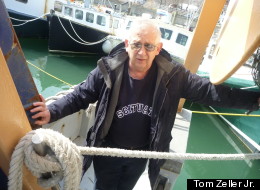 Huffington Post – With a limberness that defies his 69 years, Frank Mirarchi heaves himself over the edge of a concrete wharf and steps out onto a slack, downward sloping dock line bouncing 20 feet above the lapping waters near Scituate, Mass. continued
Huffington Post – With a limberness that defies his 69 years, Frank Mirarchi heaves himself over the edge of a concrete wharf and steps out onto a slack, downward sloping dock line bouncing 20 feet above the lapping waters near Scituate, Mass. continued
Editorial: Feds must hold Commerce to law on fishery aid
![]() Disappointing, embarrassing, offensive — all of those words can be applied to the fact that White House senior adviser Valerie Jarrett largely ignored Gov. Deval Patrick’s call for executive action to overturn the dire NOAA limit cuts now threatening the Northeast groundfishery. continued
Disappointing, embarrassing, offensive — all of those words can be applied to the fact that White House senior adviser Valerie Jarrett largely ignored Gov. Deval Patrick’s call for executive action to overturn the dire NOAA limit cuts now threatening the Northeast groundfishery. continued
The Bottom Line: Embracing Ecosystem-Based Fisheries Management
National Geographic Society – The Magnuson-Stevens Fishery Conservation and Management Act, the bedrock law governing U.S. fisheries, is up for debate and amendment in Congress. This conference will formally launch the reauthorization discussion. continued
Editorial: Fish panels’ united Magnuson stand sends powerful message
![]() The relatively rare, unified stand by all eight U.S. fishery management councils calling for more flexibility within the Magnuson-Stevens Act may not make a whit’s bit of difference for fishermen and waterfront businesses in Gloucester and elsewhere. continued
The relatively rare, unified stand by all eight U.S. fishery management councils calling for more flexibility within the Magnuson-Stevens Act may not make a whit’s bit of difference for fishermen and waterfront businesses in Gloucester and elsewhere. continued
All eight of the nation’s regional fishery management councils back Magnuson flexibility
All eight of the nation’s regional fishery management councils, the grassroots panels that work with NOAA in fishery management and on regulatory rules, put themselves on record Tuesday in favor of Congress’ writing flexibility for rebuilding timelines for overfished stocks in the Magnuson-Stevens Act. continued![]()
Congress eyeing changes to commercial fishing law
mainetoday.com – WASHINGTON — As Congress prepares to revisit the law governing how U.S. fishermen ply their trade, New England’s beleaguered groundfish industry illustrates the challenge of reviving a historic fishery in the face of climate change and other factors. For some, the industry’s struggle to survive is cited as proof that current federal fisheries regulations are too rigid to respond to unique circumstances. For others, the regulations are seen as the type of strong, science-based management that should have been in place decades ago. continued
“Today,NOAA has responded to a declared disaster by creating a crisis.” NOAA sticks to cuts in fish limits
![]() “Want to buy a boat?” said Orlando, who fishes from the 70-foot vessel Padre Pio. “I put it up for sale. I have no choice.” “Rather than take the true advice of the New England Fisheries Management Council, the New England states and Congress and go forward with a second Interim Rule, NOAA instead to chose deliver a ‘death’ sentence to an industry, a way of life, and local economies and communities up and down the New England coast,” Ferrante wrote in an email. “I cannot say that I am surprised, but today, we dig in and fight harder.” Damned RIGHT! continued
“Want to buy a boat?” said Orlando, who fishes from the 70-foot vessel Padre Pio. “I put it up for sale. I have no choice.” “Rather than take the true advice of the New England Fisheries Management Council, the New England states and Congress and go forward with a second Interim Rule, NOAA instead to chose deliver a ‘death’ sentence to an industry, a way of life, and local economies and communities up and down the New England coast,” Ferrante wrote in an email. “I cannot say that I am surprised, but today, we dig in and fight harder.” Damned RIGHT! continued
As grim fishing year approaches, New England’s fishing fleet tries to deal with new catch limits – “What are people doing to help the industry?”
![]() BOSTON – Deep cuts in catch limits will hit New England’s fishing fleet in less than three weeks, and there’s little hint any real relief is coming. But regulators and fishermen are still seeking ways to lessen a blow fishermen warn will finish them off. As time grows short, Gloucester’s Al Cottone said he and his fellow fishermen seem to be facing the future in a sort of “state of shock.” “Everyone’s in denial. They still think, you know, someone’s going to come in on their white horse and save us,” he said. “No one knows what they’re going to do,” he said. “Nobody.” continued
BOSTON – Deep cuts in catch limits will hit New England’s fishing fleet in less than three weeks, and there’s little hint any real relief is coming. But regulators and fishermen are still seeking ways to lessen a blow fishermen warn will finish them off. As time grows short, Gloucester’s Al Cottone said he and his fellow fishermen seem to be facing the future in a sort of “state of shock.” “Everyone’s in denial. They still think, you know, someone’s going to come in on their white horse and save us,” he said. “No one knows what they’re going to do,” he said. “Nobody.” continued
NILS STOLPE: The New England groundfish debacle (Part IV): Is cutting back harvest really the answer?
 The “blame it all on fishing” management philosophy “I suppose it is tempting, if the only tool you have is a hammer, to treat everything as if it were a nail.” (A. Maslow, 1966, The Psychology of Science)
The “blame it all on fishing” management philosophy “I suppose it is tempting, if the only tool you have is a hammer, to treat everything as if it were a nail.” (A. Maslow, 1966, The Psychology of Science)
NILS STOLPE Fishnet USA – While it’s a fact that’s hardly ever acknowledged, the assumption in fisheries management is that if the population of a stock of fish isn’t at some arbitrary level, it’s because of too much fishing. Hence the term “overfished.” Hence the mandated knee jerk reaction of the fisheries managers to not enough fish; cut back on fishing. What of other factors? They don’t count. It’s all about fishing, because fishing is all that the managers can control; it’s their Maslow’s Hammer. When it comes to the oceans it seems as if it’s about all that the industry connected mega-foundations that support the anti-fishing ENGOs with hundreds of millions of dollars a year in “donations” are interested in controlling. Read the article here
Lawmakers push to ease fish limits
![]() Citing widespread evidence of an abundance of important commercial in shore fish stocks — and a scientific study that found flaws in the modeling methods used by the government to set catch limits — a contingent of state lawmakers led by Senate President Therese Murray is urging NOAA’s top fisheries official to delay dire cuts planned for May 1 and allow the fleet reasonable access to stocks while new studies are conducted into the vitality of the Gulf of Maine ecosystem. continued
Citing widespread evidence of an abundance of important commercial in shore fish stocks — and a scientific study that found flaws in the modeling methods used by the government to set catch limits — a contingent of state lawmakers led by Senate President Therese Murray is urging NOAA’s top fisheries official to delay dire cuts planned for May 1 and allow the fleet reasonable access to stocks while new studies are conducted into the vitality of the Gulf of Maine ecosystem. continued
Massachusetts Lawmakers press NOAA to ‘suspend’ May 1 quota cuts
![]() Citing widespread evidence of an abundance of important commercial in shore fish stocks and a scientific study that found flaws in the modeling methods used by the government to set catch limits, a contingent of state lawmakers led by Senate President Therese Murray are urging NOAA’s top fisheries official to allow the fleet reasonable access to stocks while new studies are conducted into the vitality of the Gulf of Maine ecosystem. continued
Citing widespread evidence of an abundance of important commercial in shore fish stocks and a scientific study that found flaws in the modeling methods used by the government to set catch limits, a contingent of state lawmakers led by Senate President Therese Murray are urging NOAA’s top fisheries official to allow the fleet reasonable access to stocks while new studies are conducted into the vitality of the Gulf of Maine ecosystem. continued
U.S. House committee reviewing fisheries observer program
![]() The Magnuson Stevens Act – the federal law that manages and regulates the nation’s fisheries – will expire September 30th. Today, a U.S. House committee formally started the re-authorization process. And as APRN’s Peter Granitz reports, changes could be on the horizon for how the government monitors fishermen’s catch. continue
The Magnuson Stevens Act – the federal law that manages and regulates the nation’s fisheries – will expire September 30th. Today, a U.S. House committee formally started the re-authorization process. And as APRN’s Peter Granitz reports, changes could be on the horizon for how the government monitors fishermen’s catch. continue
Senate candidate Lynch backs fish law ‘flexibility’ – chastised Markey for partisan rhetoric
![]() Congressman and U.S. Senate candidate Stephen Lynch Thursday sided with Congressmen John Tierney and William Keating on the need for greater flexibility in the impending rewrite of the Magnuson-Stevens Act — taking issue with the stand of Congressman Ed Markey, the other primary Democrat running for John Kerry’s former Senate seat this year. continue
Congressman and U.S. Senate candidate Stephen Lynch Thursday sided with Congressmen John Tierney and William Keating on the need for greater flexibility in the impending rewrite of the Magnuson-Stevens Act — taking issue with the stand of Congressman Ed Markey, the other primary Democrat running for John Kerry’s former Senate seat this year. continue
Tierney, Markey split on Magnuson-Stevens Act fishing rules
![]() But among three Massachusetts congressmen — including the ranking Democrat on the committee, Rep. Ed Markey — there was no consensus on the need for a rewrite of the law to give the National Oceanic and Atmospheric Administration more flexibility in writing rebuilding plans for overfished species. continue
But among three Massachusetts congressmen — including the ranking Democrat on the committee, Rep. Ed Markey — there was no consensus on the need for a rewrite of the law to give the National Oceanic and Atmospheric Administration more flexibility in writing rebuilding plans for overfished species. continue
Who Owns Fish Under Briberization?
Susanne Rust’s “Who owns the fish?” is a well written and insightful piece. But, like all Catch Share authors, including myself, we are still learning how to really describe what is going on – having been overly influenced by the language of the wordsmiths brainwashing Congress and the public about quotas. With all good intention, here’s an expanded Opinion Piece to go with the March 12 article.,,,,,,,,,,.Catch shares are really about asymmetric market power —especially by cartelized processors with plenary power over price-setting— being brought about under government sponsorship due to accompanying asymmetric political power. Nothing makes that clearer that the rigged witness list at today’s US House Natural Resources meeting (see Richard Gaines’ Gloucester Daily Times Editorial-Witness-list-shows-Magnuson-talks-a-sham-from-start ). John Pappalardo is a minor part of the national problem, as he was schooled by the real culprits of Alaska Ratz, some of whom are also on the rigged hearing witness list. continued
Editorial: Witness list shows Magnuson-Stevens Act talks a sham from start
![]() So, you’d like to think that New England will be well represented at these hearings, right? Wrong. The only scheduled New England witness scheduled to speak before the House Natural Resources Committee, where Malden Congressman and U.S. Senate candidate Ed Markey is the ranking Democrat, is John Pappalardo of the Cape Cod Hook Fishermen’s Association. And that’s a shameful affront not only to rank-and-file fishermen in Gloucester and beyond, but at slap at our fishing communities, as well. continued
So, you’d like to think that New England will be well represented at these hearings, right? Wrong. The only scheduled New England witness scheduled to speak before the House Natural Resources Committee, where Malden Congressman and U.S. Senate candidate Ed Markey is the ranking Democrat, is John Pappalardo of the Cape Cod Hook Fishermen’s Association. And that’s a shameful affront not only to rank-and-file fishermen in Gloucester and beyond, but at slap at our fishing communities, as well. continued
Magnuson fishing mandates up for review – fourth 10-year revision and re-authorization
![]() The process will highlight different perspectives on the need for writing flexibility into the law — which was the subject of two national rallies at the Capitol, one in 2010 and another in 2012 — from the team of Congressman John Tierney and former Congressman Barney Frank, advocates of the need for flexibility on the one hand, to Congressman and U.S. Senate candidate Ed Markey on the other, who does not share their view of the law as an inflexible impediment to a revitalized industry. Read more
The process will highlight different perspectives on the need for writing flexibility into the law — which was the subject of two national rallies at the Capitol, one in 2010 and another in 2012 — from the team of Congressman John Tierney and former Congressman Barney Frank, advocates of the need for flexibility on the one hand, to Congressman and U.S. Senate candidate Ed Markey on the other, who does not share their view of the law as an inflexible impediment to a revitalized industry. Read more
NOAA’s fishing policies under investigation
![]() After issuing a series of investigative reports exposing excessive enforcement on the part of federal fisheries agents, the U.S. Commerce Department’s Office of Inspector General has now turned to auditing how NOAA carried out and implemented policies that have transformed fisheries into commodity markets — and are being blamed for job losses and consolidation throughout the industry. Read more
After issuing a series of investigative reports exposing excessive enforcement on the part of federal fisheries agents, the U.S. Commerce Department’s Office of Inspector General has now turned to auditing how NOAA carried out and implemented policies that have transformed fisheries into commodity markets — and are being blamed for job losses and consolidation throughout the industry. Read more
UCIDA again sues over fed management of Cook Inlet salmon fishery
UCIDA and Cook Inlet Fishermen’s Fund are suing the National Marine Fisheries Service over the decision to transfer control of the fishery from federal to state control, saying the move violates the Magnuson-Stevens Act, the National Environmental Policy Act and the Administrative Procedure Act. Read more here
Opinion – Hard realities for New England fishermen
 For decades the waters off New England have been subject to some of the most intense fishing pressure and environmental impacts of any body of water in the world. These impacts include shipping traffic, pollution, loss of habitat, and myriad other factors. Researchers at the University of California Santa Barbara’s Marine Science Institute determined in a study titled, “A Global Map of Human Impact on Marine Ecosystems,” that the Gulf of Maine and environs had suffered an overall degradation of more than 90 percent compared to their pristine state. The worst of this has occurred in the last 50 years. Read more here!
For decades the waters off New England have been subject to some of the most intense fishing pressure and environmental impacts of any body of water in the world. These impacts include shipping traffic, pollution, loss of habitat, and myriad other factors. Researchers at the University of California Santa Barbara’s Marine Science Institute determined in a study titled, “A Global Map of Human Impact on Marine Ecosystems,” that the Gulf of Maine and environs had suffered an overall degradation of more than 90 percent compared to their pristine state. The worst of this has occurred in the last 50 years. Read more here!
A Must Read – Common-sense fisheries oversight needed By Daniel Goethel. “Extinction”
As the debate looms over whether Gulf of Maine cod catch limits for 2013 and beyond should be cut by 90 percent or a mere 80 percent, I found myself drawn to a piece of writing that I submitted as part of my college applicatio n in 2002. Dramatically enough, it was titled “Extinction” and recapped my naive first 18 years of life as part of a small-boat New England fishing family. The essay started ominously enough by stating that “every year, New England’s fleet shrinks and approaches extinction.” Typically enough, for a pro-fisherman piece, it bashed government science for using incorrect data and ignoring fishermen’s observations, while bemoaning the days of 30-pound trip limits. However, it ended on a cautiously optimistic note highlighting the then-recent increase in cod trip limits to 400 pounds a day.
n in 2002. Dramatically enough, it was titled “Extinction” and recapped my naive first 18 years of life as part of a small-boat New England fishing family. The essay started ominously enough by stating that “every year, New England’s fleet shrinks and approaches extinction.” Typically enough, for a pro-fisherman piece, it bashed government science for using incorrect data and ignoring fishermen’s observations, while bemoaning the days of 30-pound trip limits. However, it ended on a cautiously optimistic note highlighting the then-recent increase in cod trip limits to 400 pounds a day.
Looking back at this work, written more than a decade ago, I am dumbfounded to see that New England groundfish management has once again regressed. Today, I am deep into my pursuit of a PhD in fisheries stock assessment,,,,,,,,Read the rest
Fishermen could use a little extra under the tree – Steve Urbon
I have never seen former New Bedford Mayor John Bullard look so downcast as he did last Thursday at the special meeting of the New England Fisheries Management council in Wakefield. Bullard, who now heads NOAA fisheries in the Northeast, was trying to break the news gently that what the council is about to do with quota allocations wasn’t going to be easy. Someone in the room full of 150 people, mostly fishermen and their families, had asked him to “do the right thing” when it comes to issuing allocations. “Doing the right thing is going to be very, very hard,” Bullard said repeatedly speaking slowly in a low voice. He didn’t get specific, but everyone in the room knew what he meant: This wasn’t going to be pretty. Peter Shelley, senior attorney for the Conservation Law Foundation, made it clear what he and other environmentalist groups were expecting from the council: “You all swore an oath to uphold the Magnuson-Stevens Act,” he reminded them darkly before sitting back down to a chorus of boos and hisses. Shelley apparently didn’t have it in him to acknowledge what the fishermen were telling the council: After following the council’s draconian rules for years in order to rebuild the fishery, they were being repaid by being forced out of business.
Year after year, fishermen are asked to follow rules that boggle the mind and empty the treasury. Any reporter covering fisheries management will tell you it is one of the most impenetrable briar patches of science, politics and bureaucracy that can be imagined. Read More






 September 11, 2013 – U.S. saltwater anglers today heard from a bipartisan coalition of congressional leaders that our federal fisheries law is in need of amendments in order to keep Americans fishing. “Both Chairman Hastings and new ranking minority leader Peter DeFazio (D-OR) pledged support for looking at sensible amendments to the Magnuson-Stevens Act to incorporate limited management flexibility to provide a better balance of commerce and conservation,” said RFA executive director Jim Donofrio.
September 11, 2013 – U.S. saltwater anglers today heard from a bipartisan coalition of congressional leaders that our federal fisheries law is in need of amendments in order to keep Americans fishing. “Both Chairman Hastings and new ranking minority leader Peter DeFazio (D-OR) pledged support for looking at sensible amendments to the Magnuson-Stevens Act to incorporate limited management flexibility to provide a better balance of commerce and conservation,” said RFA executive director Jim Donofrio. 




























